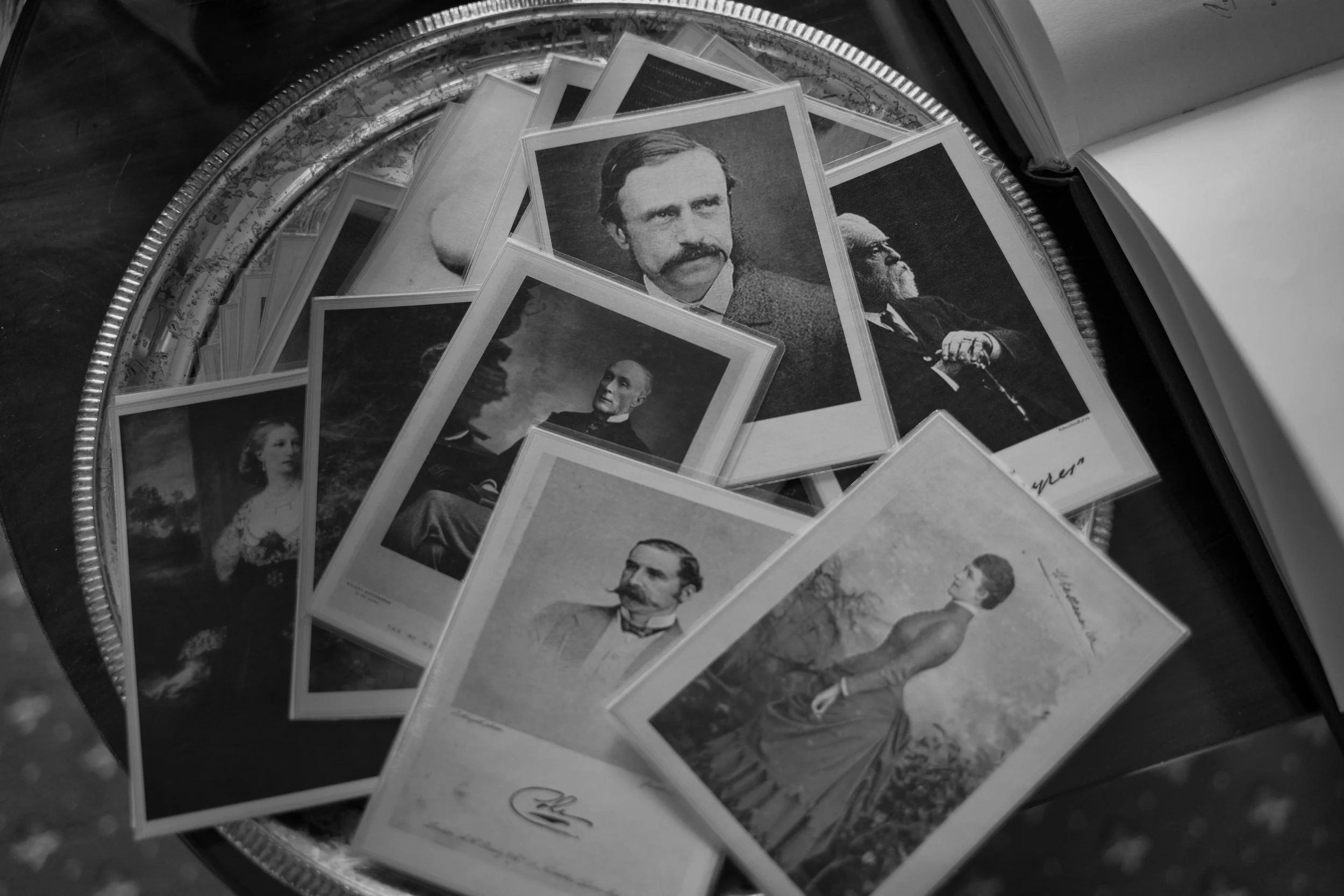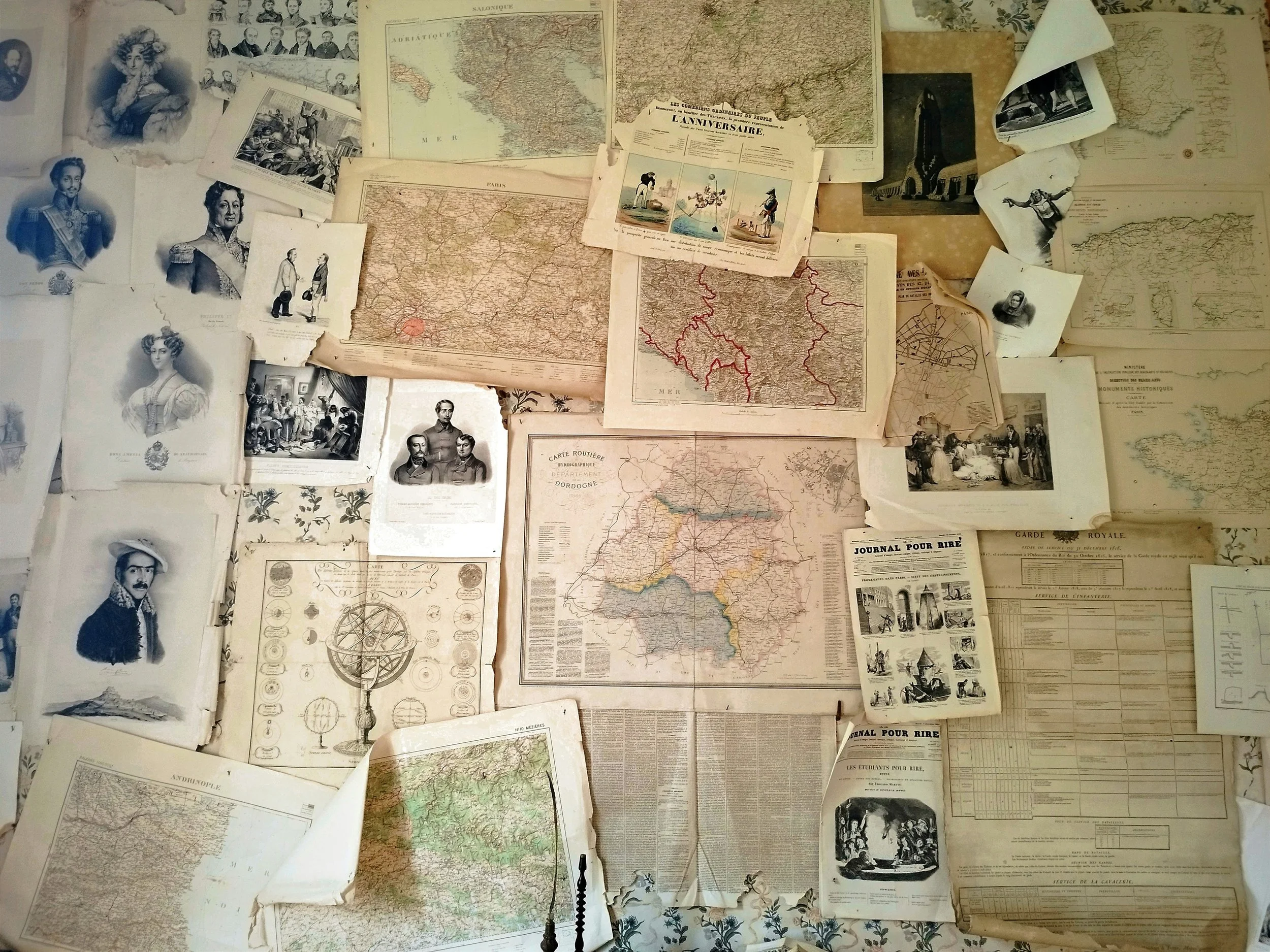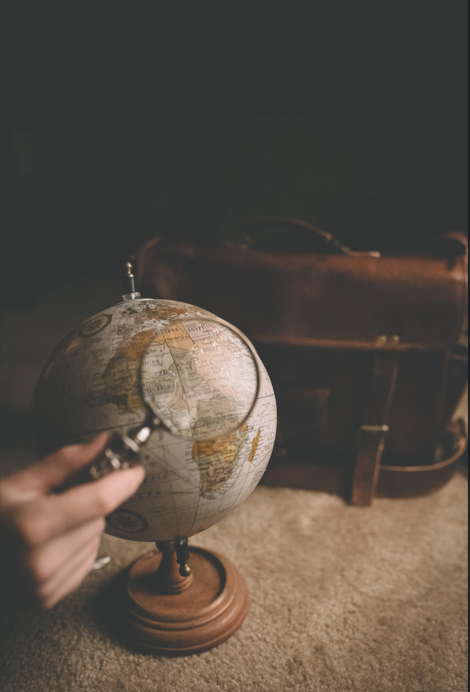Why Your Family Tree Matters More Than Ever: Finding Ourselves in Our Ancestors
Each face tells a story. Each story deserves to be remembered.
Part of the Storyline Genealogy Series: Because every family story deserves to be told
In an age of DNA tests, instant messaging, and global connectivity, we're paradoxically more disconnected from our roots than ever before. We know what our friends ate for lunch, but we don't know the names of our great-great-grandparents. We can video chat with someone across the world, but we've never heard the stories of the people who made our very existence possible.
It's time we changed that.
We Are Because They Were
When you trace your family tree, you're not just collecting names and dates on a chart. You're uncovering the answer to one of life's most profound questions: Who am I, really?
Every single one of us is here because of an unbroken chain of survivors. Think about that for a moment. Your ancestors survived plagues, wars, famines, migrations, heartbreak, and loss. They crossed oceans in cramped ships. They walked thousands of miles to find safety. They worked dawn to dusk in fields, factories, and workshops. They fell in love against all odds. They had the audacity to hope for a better future, even when the present was unbearable.
You carry their strength in your DNA.
When you're facing your own challenges—a difficult career decision, a health crisis, a personal setback—remember: you come from people who faced worse and survived. That resilience isn't just metaphorical; it's literally encoded in you. The courage it took for your great-grandmother to leave everything she knew and immigrate to a new country? That same courage flows through your veins. The determination your grandfather showed in rebuilding his life after war? You inherited that, too.
Understanding our genealogy gives us a deeper sense of identity because it reminds us that we're not isolated individuals stumbling through life alone. We're the living embodiment of hundreds of love stories, thousands of small victories, and countless moments of bravery. We stand on the shoulders of giants whose names we may never know, but whose legacy we carry forward every single day.
From their roots, we bloom. The strength they planted in us continues to grow.
The Detective Work: Reconstructing What Was Lost or Misunderstood
Family history doesn't come to us neat and complete. Sometimes it comes to us wrong. Sometimes it doesn't come to us at all.
Often, our ancestors didn't talk about the past. Not because they didn't care, but because they were too busy surviving.
Death stole their voices before they could pass on what they knew. Trauma made the memories too painful to revisit. War, displacement, poverty, illness, loss—these things don't leave much room for sitting down and telling stories to the next generation. Sometimes our ancestors were simply trying to keep going, to put one foot in front of the other, to feed their children and make it through another day. Looking backward felt like a luxury they couldn't afford.
And so the stories died with them. The connections were forgotten. The understanding of what they endured—and what they overcame—faded into silence.
This makes the work of reconstruction not just interesting, but essential. We owe it to them to uncover what they couldn't or wouldn't tell us. We owe it to ourselves to truly understand the magnitude of what they survived.
Families pass down fragments, but memories fade, details blur, and sometimes deliberate secrets obscure the truth. Census records have errors. Names get spelled three different ways. People move and disappear from the paper trail. Three different men in three different places all have the same name—and suddenly you're trying to figure out which one is your ancestor, who their parents were, and how (or if) they're all related.
I know this challenge intimately. I've spent countless hours deep in the weeds of birth records, census data, land deeds, and marriage certificates, trying to untangle ancestors who shared names and whose lives intersected in ways that had confused family historians for generations. It's painstaking. It's frustrating.
But when you finally reconstruct their stories and prove their actual connections, something profound happens.
These ancestors weren't just names on a chart anymore. They became real. You can see their actual relationships, understand their movements, and correct the family myths that obscured who they truly were. You give them back their identities—and in doing so, you give their descendants the truth about where they really came from.
This is what genealogy can do. It can:
Correct family legends that turned out to be fiction or were applied to the wrong person
Restore dignity to ancestors who were erased, misunderstood, or deliberately hidden
Solve mysteries that have puzzled families for generations
Prove connections that seemed impossible but turn out to be true
Break down brick walls that have kept families from understanding their true origins
Sometimes the reconstruction reveals difficult truths—ancestors who were enslaved, children born out of wedlock, scandals that were hushed up, poverty that was hidden in shame. But even these hard truths are valuable. They make our ancestors human. They show us that struggle, survival, and imperfection are part of every family story, not something to be ashamed of.
And sometimes—wonderfully—the reconstruction reveals connections we never imagined. That family story about being related to someone famous? It might actually be true. That distant cousin you've been corresponding with? The records prove you're closer than anyone thought. That ancestor everyone assumed came from one place? They actually came from somewhere completely different, opening up entire new branches of your tree.
When we reconstruct these stories with diligence and care, we're not just satisfying our curiosity. We're giving our ancestors justice. We're honoring them by knowing them truly, not as legends or myths, but as the complex, real people they were.
More than that, we're finally giving ourselves the full picture of what they endured and overcame. Without this detective work, we might know they "had a hard life" in some vague, abstract way. But when you uncover the actual records—when you see that your great-great-grandmother was widowed at 23 with four children and somehow kept them all alive through a depression, when you discover your grandfather fled a war-torn country with nothing but the clothes on his back, when you piece together how your ancestors survived famine, discrimination, or unimaginable loss—that's when you truly appreciate the strength you inherited.
You can't fully appreciate what you don't fully understand. The silence our ancestors kept, whether by choice or circumstance, doesn't have to be permanent. We have the tools, the records, and the responsibility to break that silence and tell their complete stories.
The detective work of genealogy: piecing together fragments of maps, records, and memories to reconstruct the truth of who our ancestors really were.
The Ultimate Family Reunion: We're All Cousins
We are all descended from travelers, migrants, and wanderers. It's just a matter of how far back you look.
Here's where genealogy gets really interesting—and potentially world-changing.
If you trace any two people's family trees back far enough, you'll find a common ancestor. That's not a metaphor or a spiritual platitude. It's mathematical and biological fact.
Most geneticists agree that if you go back just 3,400 years or so, you'll find ancestors common to every person alive today. Go back further—about 5,000 to 7,000 years—and we reach what scientists call the "genetic isopoint," the time when everyone alive then is either the ancestor of everyone alive now, or of no one.
Translation: We are all, quite literally, family.
That person you disagree with politically? Cousin. The person who practices a different religion than you? Cousin. Someone from a country your nation has conflict with? Also cousin. The homeless person you pass on the street, the CEO in the corner office, the refugee seeking asylum, the celebrity on your screen—all cousins, if you go back far enough.
And here's another truth that genealogy reveals: We are all immigrants.
Every single one of us. It's just a matter of how far back you go. Your family may have been in one place for five generations, but go back ten, or twenty, or a hundred generations, and you'll find movement. Migration. Border crossings. People leaving one place and arriving in another, often with nothing but hope and determination.
The ancestors you're so proud of for being "from" a particular place? They came from somewhere else before that. The family that claims deep roots in one nation? Those roots trace back to another land, and another before that. Go back far enough, and we all trace back to Africa, to the earliest humans who left the cradle of civilization and spread across the globe.
There is no "us" and "them" when it comes to immigration. There's only us—a species that has always moved, adapted, and survived by going to new places and starting over.
When you research your family history, you almost always find surprises. The family you thought was "pure" one ethnicity discovers unexpected diversity. The ancestors you assumed were always in one place turn out to be migrants, refugees, wanderers. The religious traditions you thought went back forever are actually relatively recent. Your family tree is a map of human migration, cultural blending, and survival through cooperation—proof that we've always been mixing, moving, and adapting, and that this diversity made us stronger.
Imagine if we truly internalized this truth. Imagine if, before we drew lines between "us" and "them," we remembered that we're all family—sharing ancestors, DNA, and the same fundamental human story of survival, love, loss, and hope.
Tell Your Story Before It's Lost
In the handwriting, we hear their voices. In the photographs, we see their faces. These are the stories we must preserve before they vanish forever.
Here's the urgent truth: every day, we lose stories. Every elder who passes takes with them memories, experiences, and connections that can never be recovered. Every generation that doesn't ask questions leaves their descendants orphaned from their own history.
If you do nothing else after reading this, do this: talk to your oldest living relatives. Record them. Ask questions. Who were their parents? What were their grandparents like? What stories were passed down? What hardships did the family face? What triumphs did they celebrate? What foods did they cook? What songs did they sing? What did they believe in?
These conversations are gifts you give to yourself, your children, and everyone who comes after. They're the threads that weave your family narrative together. They're the proof that you come from somewhere, from someone, from a long line of people who loved fiercely enough to ensure you exist today.
The Legacy You're Building
Genealogy isn't just about looking backward—it's about understanding your place in an ongoing story. You're not the end point; you're a link in the chain. The choices you make, the values you uphold, the stories you tell—these become part of the legacy you pass forward.
When you understand that you inherited strength from ancestors you'll never meet, you feel a responsibility to be worthy of that inheritance. When you understand that all humans are connected through shared ancestry, it becomes harder to participate in hatred and division.
We are here because they were there. We are strong because they were brave. We are connected because we all share the same ancient roots.
Your family tree isn't just your past—it's the roadmap to understanding who you are, where you belong, and how you fit into the grand human story.
It's time to trace your roots, honor your ancestors, and remember that we're all part of one extraordinary, complicated, beautiful human family.
Start today: Write down everything you know about your grandparents. Then call a relative and ask them to fill in the gaps. The stories are there, waiting to be preserved. All you have to do is ask.
Photographs: Storyline Genealogy Collection
Images: Jay Turner/Eugenia Pan'kiv/Thérèse Photo/June Hansen/Unsplash
Want to Know When New Stories Are Published?
Subscribe to receive updates on new family history research—no spam, just meaningful stories when there's something worth sharing.
SUBSCRIBE TO OUR NEWSLETTERReady to Discover Your Family's Story?
Let's explore your family history together. Schedule a free consultation to discuss your research goals and how we can help bring your ancestors' stories to life.
Schedule Your Free Consultation




